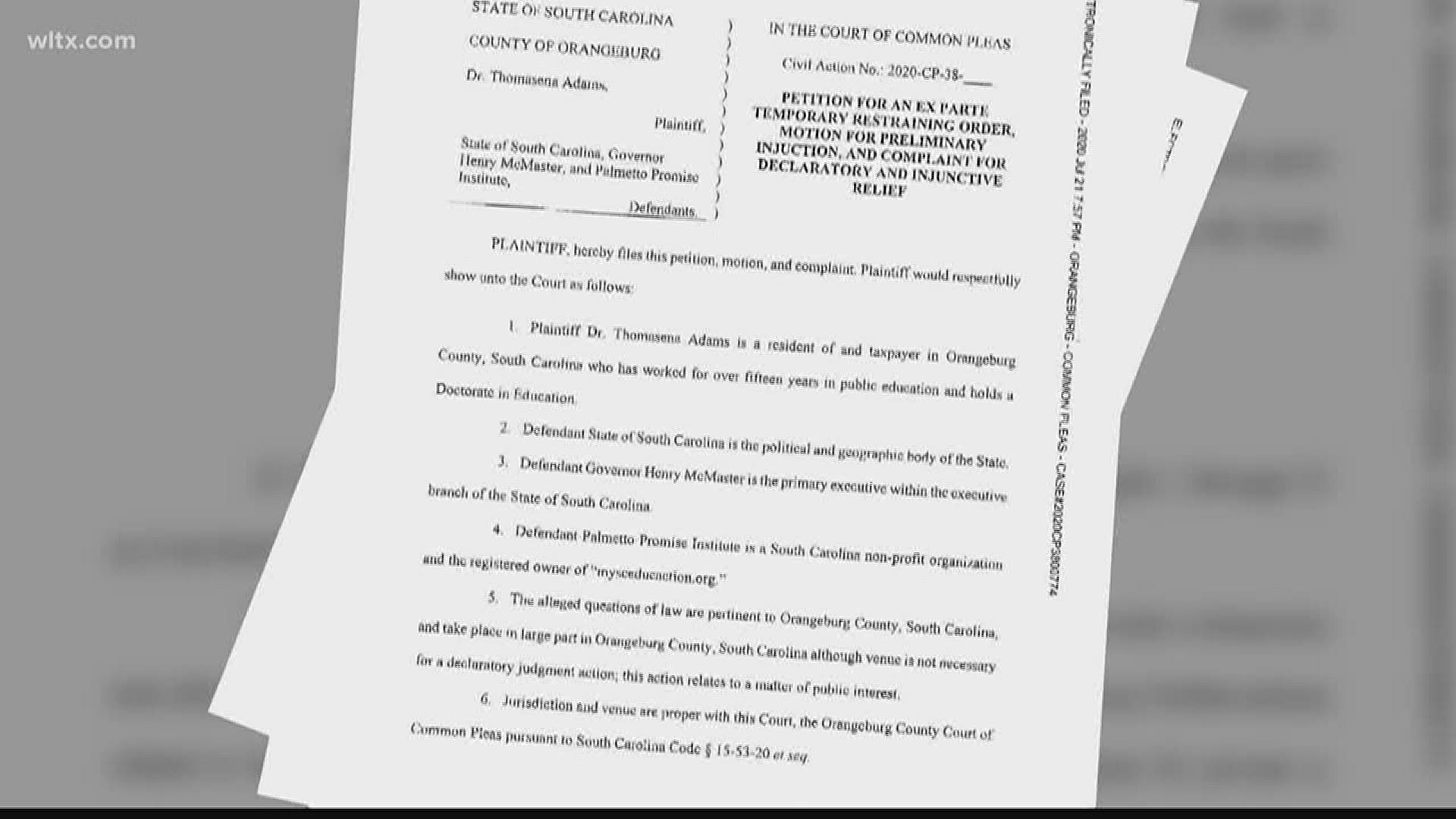ORANGEBURG, S.C. — An Orangeburg County Circuit Court Judge is expected to give a ruling on Wednesday's hearing, questioning if Governor McMaster's push to give private schools public funding, is constitutional.
Last week Governor McMaster announced that $32 million from the Governor's Emergency Education Relief fund would go towards the tuition of students for private schools.
That decision was immediately challenged with a lawsuit, from Dr. Thomasena Adams, a former educator from Orangeburg County.
"The constitution explicitly prohibits the state from attempting to fund those endeavors of a private school," says Skyler Hutto, who is representing Dr. Adams. "Even if the state contends that the agreement in question here is between a parent, or a family and the state, there is no way that the benefit of the agreement does not go directly to a private school. That would make them a direct beneficiary."
Hutto's only witness to testify in court was education policy expert and University of South Carolina professor Derek Black. Black says the funding would not benefit a majority of students in the state.
"Based upon past evidence about how choice programs would work it would be the insiders, so to speak, who would be the first to apply and the first to get funds."
Governor McMaster's defense explained that the program is constitutional, and is modeled after other programs in the state, like the Education Lottery.
"Although this program is based on other successful programs in South Carolina and other states, the plaintiff filled this lawsuit based on a constitutional provision that hasn't been in place for 45 years," says Thomas Limehouse, Jr., chief legal counsel for the Governor’s office.
"They are trying to remove available monies from parents and children who want to make meaningful choices about their child's education,” says Vordman Traywick, III, attorney.
The Palmetto Promise Institute also explained that the funds would not go directly to schools, but instead would go to families to pay for tuition.
"We are confident that the legal merits of this case will bear us out and we are looking for a speedy resolution from the judge in this case,” says Ellen Weaver of the Palmetto Promise Institute. “We believe justice delayed is justice denied to the students who would benefit from this program."

